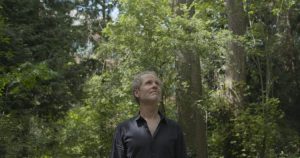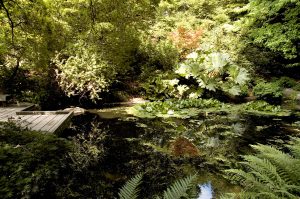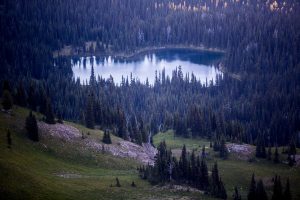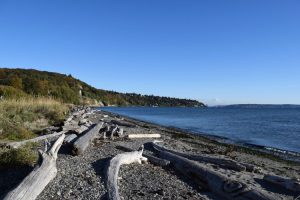Robin Tricoles · BrainFacts · July 24, 2023
Interview with Peter Kahn, Nature and Health researcher and Steering Committee member
 Most people are familiar with amnesia, the inability to recall events that happen before or after a significant incident, such as a head injury. But what about environmental generational amnesia or EGA, the phenomena by which across generations, the norm for a healthy, natural world declines?
Most people are familiar with amnesia, the inability to recall events that happen before or after a significant incident, such as a head injury. But what about environmental generational amnesia or EGA, the phenomena by which across generations, the norm for a healthy, natural world declines?
Each generation largely accepts the environment they are born into as nature’s norm, no matter how degraded that environment may be. Studies have shown that urbanization is linked to mental illness, such as depression, which is why access to nature in urbanized areas may improve mental health. A recent study even suggests greater exposure to green space may also slow genetic aging, though the effect varies across race, gender, and socioeconomic status. Another study indicates a 90-minute nature walk elicits beneficial neural activity in a part of the brain associated with depression and anxiety.
Peter Kahn, director of the Human Interaction with Nature and Technological Systems (HINTS) Lab at the University of Washington, coined the phrase “environmental generational amnesia” and calls EGA “one of the fundamental, deepest psychological problems of our lifetime.” The psychology professor studies the rapid degradation of the natural world and the acceleration of technological advances. BrainFacts.org speaks with Kahn about how EGA affects our psyches and brains, as well as ways to address this collective blind spot and why it is necessary to do so. For Kahn, understanding EGA is where we start to fight climate change.

 According to Kahn and Weiss, we all experience this environmental form of generational amnesia. It is not so much that individuals fail to recall the past they themselves have lived, it’s more that humanity collectively “forgets” the natural world as it once was, as the generations pass. “The problem is one of the most pressing psychological problems of our lifetime,” they write. “It is hard enough to solve problems, like deforestation, ocean acidification, and climate change; but at least most people recognise them as problems.”
According to Kahn and Weiss, we all experience this environmental form of generational amnesia. It is not so much that individuals fail to recall the past they themselves have lived, it’s more that humanity collectively “forgets” the natural world as it once was, as the generations pass. “The problem is one of the most pressing psychological problems of our lifetime,” they write. “It is hard enough to solve problems, like deforestation, ocean acidification, and climate change; but at least most people recognise them as problems.” As we embed ourselves more and more in urban environments, it’s important to remember our need for a connection to nature. The results can also help city planners when designing parks.
As we embed ourselves more and more in urban environments, it’s important to remember our need for a connection to nature. The results can also help city planners when designing parks.